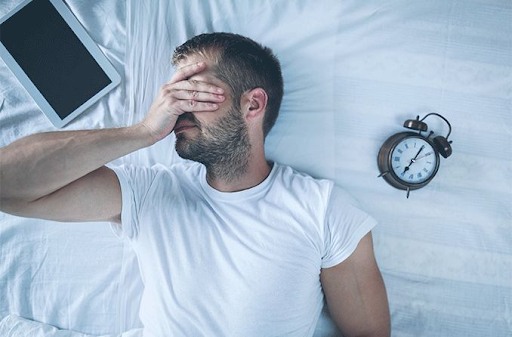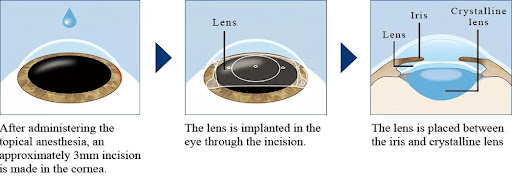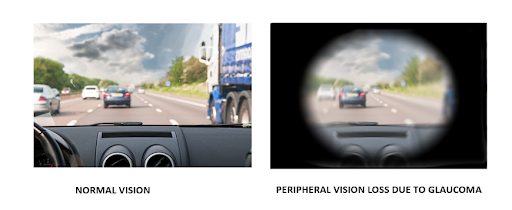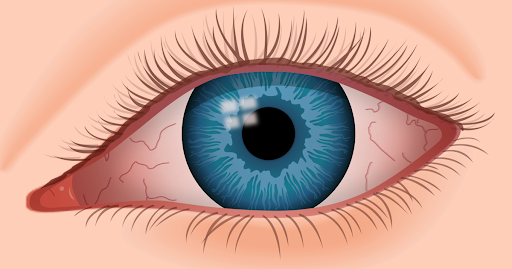The correlation between insufficient sleep and various eye disorders is indeed undeniable. Chronic sleep deprivation has been linked to a range of eye issues, extending from common discomforts like dry eyes and eye spasms to more severe conditions such as glaucoma.
At Eyeonce Eye Clinic, Dr. Paik Dong Won and Dr. Jung Sae Rom emphasize the critical role of adequate sleep in maintaining optimal eye health. Insufficient sleep not only affects the quantity of rest our eyes receive but also contributes to a cascade of physiological changes that can impact their overall functionality. As we explore the profound impact of sleep on eye health, it becomes evident that prioritizing a good night’s sleep is a proactive measure in preventing a spectrum of eye disorders.
Impact of Blue Lights on Eyes The Role of Sleep in Maintaining Healthy Eyes
Adequate and quality sleep plays a pivotal role in maintaining healthy eyes. The intricate connection between our sleep patterns and the well-being of our eyes is crucial for optimal eye function and overall ocular health. Let us delve into the specific roles that sleep performs in supporting the vitality of our eyes:
Repair and Regeneration
During sleep, the body initiates crucial repair and regeneration processes, and the eyes are no exception. The eyes work tirelessly throughout the day, exposed to various environmental factors and digital screens. Sleep allows the ocular tissues to rejuvenate, repairing any minor damages and ensuring they are ready for the visual demands of the following day.
Moisture and Tear Production
One of the primary functions of sleep is to promote proper moisture and tear production in the eyes. Inadequate sleep can lead to dry eyes, a condition where the eyes lack sufficient lubrication. Tears are essential for maintaining the optical surface, preventing discomfort, and ensuring clear vision. Quality sleep supports the natural balance of tear production, reducing the risk of dryness and irritation.
Reduction of Eye Strain
Proper sleep contributes significantly to reducing eye strain. Prolonged wakefulness, especially in front of digital screens, can strain the eye muscles and contribute to digital eye fatigue. Sleep acts as a natural remedy, allowing these muscles to relax and recover, alleviating strain, and promoting a refreshed feeling in the eyes.
Regulation of Intraocular Pressure
Maintaining healthy intraocular pressure is vital for preventing conditions like glaucoma. Sleep plays a role in regulating intraocular pressure, ensuring that it stays within normal ranges. Consistent and quality sleep patterns may help reduce the risk of elevated intraocular pressure, subsequently lowering the likelihood of developing glaucoma.
Support for Optimal Vision Clarity
Quality sleep supports optimal vision clarity. The eyes are intricate organs, and their functionality is closely tied to the overall health of the body. Sleep enhances visual acuity, sharpness, and the ability to focus. Individuals who prioritize good sleep often experience clearer and more vibrant vision.
Prevention of Eye Twitching and Spasms
Sleep deprivation is a common trigger for eye twitching and spasms. These involuntary muscle contractions, especially in the eyelids, can be disruptive and uncomfortable. Adequate sleep helps prevent these spasms, allowing the eye muscles to relax and reducing the likelihood of twitching episodes.
The role of sleep in maintaining healthy eyes is multifaceted. From promoting repair and regeneration to supporting tear production and reducing eye strain. Eyeonce Eye Clinic’s expert eye doctors, Dr. Paik Dong Won and Dr. Jung Sae Rom strongly believe that quality sleep is a fundamental aspect of comprehensive eye care. This is why they educate their patients about the symbiotic relationship between sleep and eye health. Book an appointment with them today to learn more!
Impact of Poor Sleep and Eye Health
Insufficient or poor-quality sleep can have a profound impact on eye health, leading to various concerns and problems that affect both comfort and vision. Here are the different eye concerns and problems associated with a lack of quality sleep:
- Dry Eyes – Lack of proper sleep may lead to decreased tear production, resulting in dryness, irritation, and a gritty feeling. Tears play a significant role in maintaining eye comfort and clarity.
- Eye Fatigue and Strain – Without adequate sleep, the eye muscles may not have sufficient time to relax and recover, leading to eye fatigue. Persistent eye strain can contribute to discomfort, headaches, and a reduction in overall visual acuity.
- Increased Sensitivity to Light – This heightened sensitivity is known as photophobia where the eyes find it difficult adjusting to different light conditions. Individuals with insufficient sleep may find themselves more prone to discomfort in brightly lit environments.
- Eye Twitching and Spasms – Involuntary muscle contractions, particularly in the eyelids, are common manifestations of sleep deprivation. Eye twitching and spasms can be disruptive and uncomfortable, impacting daily activities. Prioritizing quality sleep is essential.
- Blurry Vision – Inadequate sleep can contribute to blurry vision, affecting the clarity and sharpness of sight. This blurriness may be temporary, but chronic sleep deprivation could lead to more persistent visual disturbances.
- Increased Risk of Eye Infections – Quality sleep supports the immune system, and a weakened immune response due to lack of sleep can increase the vulnerability of eye infections. Conjunctivitis (pink eye) and other infections may be more likely to occur in individuals with consistently poor sleep patterns.
- Elevated Intraocular Pressure – Chronic sleep deprivation has been associated with an increase in intraocular pressure, where damage to the optic nerve can occur.
- Impaired Color Perception – Quality sleep is essential for maintaining optimal color perception. Sleep deprivation may lead to a temporary impairment in the ability to distinguish between different colors, impacting the richness and vibrancy of visual experiences.
The impact of poor sleep on eye health extends beyond mere discomfort. If you are experiencing the concerns mentioned above, visit Eyeonce Eye Clinic for a comprehensive consultation and proper intervention.
Symptoms of Sleep-Deprived Eyes
The eyes often serve as a noticeable indicator of the body’s overall well-being, and insufficient sleep can manifest through various symptoms such as:
- Redness and Bloodshot eyes
- Puffy or Swollen Eyelids
- Dark Circles Under the Eyes
- Twitching or Eye Spasms
- Dry or Irritated Eyes
- Increased Sensitivity to Light (Photophobia)
- Blurred or Impaired Vision
- Difficulty Focusing
- Increased Eye Watering
- Impaired Color Perception
For comprehensive guidance on maintaining healthy eyes through proper sleep, Eyeonce can be a beacon of hope. Their specialized knowledge and commitment to eye care make them a valuable resource in addressing sleep-related concerns and preserving optimal visual function.
Interventions for Sleep-Related Eye Concerns
Addressing sleep-related concerns requires a proactive approach to improve both sleep quality and overall eye health. Here are several possible interventions to alleviate and prevent issues associated with inadequate sleep:
- Prioritize sleep
- Adopt Healthy Sleep Habits
- Stay hydrated
- Use Artificial Tears
- Warm Compresses for Eye Fatigue
- Blue Light Filters
- Professional Eye Examinations
- Nutrient-Rich Diet
- Reduce Caffeine and Stimulants
- Manage Stress
- Prescription Eyewear
- Consultation with Eye Care Professionals
By incorporating these interventions into your routine, you can take proactive steps to address sleep-related eye concerns and maintain optimal eye health.
Why choose Eyeonce Eye Clinic Gangnam for sleep-related eye concerns?
Utmost Patient Care
Our eye care professionals and staff ensure to give you your money’s worth. We guarantee you receive the best medication possible and assure you that you are guided and understood, making you feel comfortable and confident at every step.
Comprehensive Consultation
Eyeonce Eye Clinic offers comprehensive eye examinations to evaluate your condition and determine the best eye strain treatment. Our ophthalmologists take their time to cater to your questions and address your concerns, ensuring you make an informed decision about our vision correction options.
Expert Eye Doctors
Our ophthalmologists, Head Director Dr. Paik Dong Won and Medical Director Dr. Jung Sae Rom, are highly knowledgeable and adept in treating eye strain. They always use the latest techniques and technologies to ensure optimal results.
Frequently Asked Questions (FAQs)
Quality sleep for eye health is not just about hours; it is about achieving deep, interrupted sleep. On average, adults should aim for 7-9 hours, but individual needs may vary.
While occasional poor sleep may not cause permanent damage, chronic sleep deprivation can contribute to long-term eye disorders. It is crucial to prioritize consistent, quality sleep.
Engaging in relaxation exercises, such as palming and eye massages, can contribute to better sleep. However, it is essential to address overall sleep hygiene for optimal results.
Conclusion
The profound impact of sleep on eye health cannot be overstated. From common concerns like dry eyes and eye strain to more severe conditions such as glaucoma, the quality of our sleep directly influences the well-being of our eyes. For tailored guidance on optimizing your sleep for better eye health, schedule a consultation with the renowned eye doctors of Eyeonce Eye Clinic, Dr. Paik Dong Won and Dr. Jung Sae Rom today!



